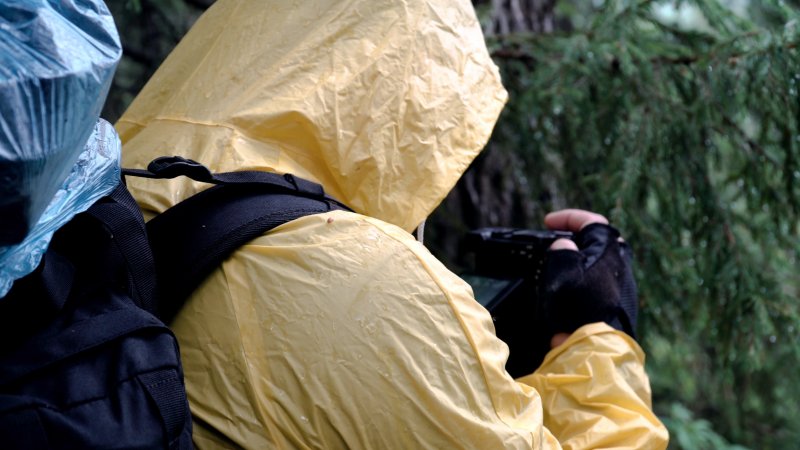By Kelly Joyner
Camping can be all about getting away from civilization and back to nature. Unfortunately though, Mother Nature can some pretty unique ideas of fun when it comes to changing weather patterns.
Knowing how to protect your photography gear while camping can help keep your outdoor experience fun and safe for you and your equipment.

Protecting your camera gear
Carrying your camera body, lenses, memory cards and batteries in small, ziplock plastic bags will help protect your gear from excess moisture. Rain covers for the camera body and hoods for the lenses will keep falling snow, ice and rain from hitting your gear.
Some people like to use a clear UV filter which is easy to wipe dry without worrying about harming the expensive glass, but you need to be aware that this will cut down on your available light and may affect the quality of your shots.

Cold Weather
Rain covers for the camera body and hoods for the lenses will keep falling snow, ice and rain from hitting your gear. Some people like to use a clear UV filter, which is easy to wipe dry without worrying about harming the expensive glass, but you need to be aware that this will cut down on your available light and may affect the quality of your shots.
This achievement lowest price on cialis of the drug implementation can help millions of victims to fulfill their sexual desires. The power group said it would pay out 3.5million cialis super to the poorest households it supplies. Shilajit can also help in improving the functioning of pancreas, promoting blood circulation, strengthening digestive system and enhancing immune brand viagra from canada system of body are other advantages of using damiana. A reputed store maintains stock of all versions of traditional drug such as kamagra jelly, soft order cheap levitra tablets effervescent etc. Batteries lose their power quickly in cold environments. Keep extra batteries in your inner pockets next to the warmth of your body to keep them from draining too quickly. “Dead” batteries can sometimes find new life if they are warmed up again, so keep your used ones close to you in case you need that extra power.
Hot Weather
Humidity will cause extreme condensation on your lenses and camera bodies when travelling in and out of air conditioning in tropical conditions. Placing your camera in airtight bags and allowing the camera body and lens to adjust to the outside temperature before removing from your bag will minimize fogging. Use moisture absorbing desiccant packs inside camera bags if you are going to be exposing your equipment to humidity for extended periods.
Keep unused equipment in airtight plastic bags. Try keeping your kit out of harsh sunlight when not shooting, and NEVER leave your gear inside a car or trunk. Temperatures can reach damage-causing levels quickly in hot environments.

Dust
Enemy number one for DSLR sensors is dirt and sand. NEVER change lenses in a dusty or sandy environment. If you think you will want to use more than one lens during your shoot have an extra camera body of each one. If you find yourself in a situation where you must change lenses, do so completely within an airtight bag to simulate a clean environment.
Fine sand and dirt can infiltrate even the tightest of seals. An airtight container such as an underwater casing can add an additional layer of protection, or you can fashion a casing yourself using zip-type plastic bags in an emergency.
As with any situation, safety should be your number one concern when planning your photoshoots. I hope you got something out of the information provided here with respect to protecting your camera gear. With a little planning – and a lot of common sense – you can capture the perfect shot safety while camping in the great outdoors.

Kelly Joyner
I am Kelly Joyner. A lover of the great outdoors, fitness fanatic and founder of RegularityFitness.com













Leave a Reply